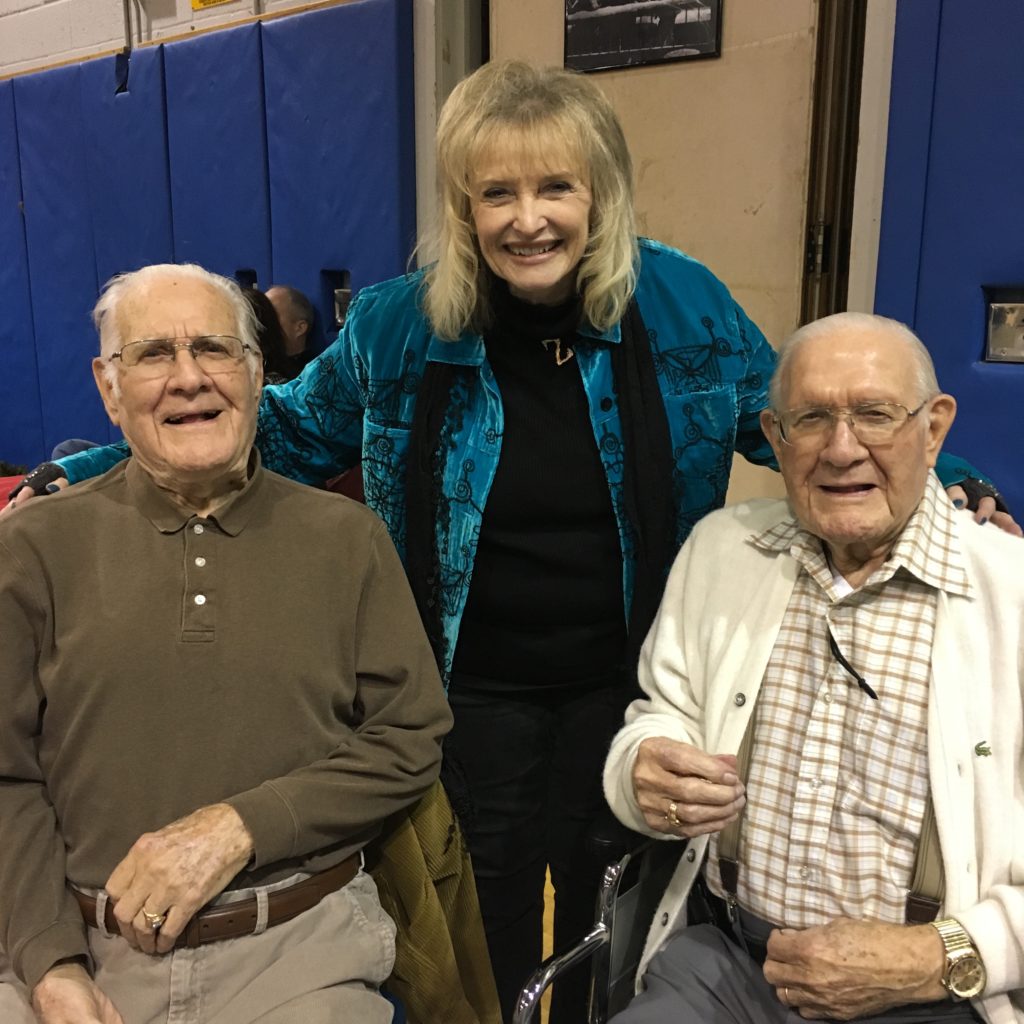As Christmas approaches, our thoughts tend to turn toward those who are no longer with us. Losses loom particularly large when we face our first Christmas without a beloved family member, especially when they’ve been a regular part of our celebration.
For the first time in 20 years, Grandpa will not be spending the holiday with us. He passed away in August at the age of 92.
We’ve never had a Christmas in New Hampshire without him. Every December since we moved to the great Granite State, Grandpa and Grandma would travel from their home in Seneca Falls, NY to spend the holidays with us, leaving just after New Year’s. After Grandma passed away in 2013, Mom would drive to New York and bring Grandpa back for his holiday visit.
Before Grandma and Grandpa would make their visit, they would participate in another holiday tradition: the “It’s a Wonderful Life” Festival. Seneca Falls is widely thought to be the inspiration for the town of Bedford Falls, NY, the setting of Frank Capra’s classic Christmas film, “It’s a Wonderful Life,” and Seneca Falls has held the festival every December since 1996 to celebrate the town’s connections to the film.
“It’s a Wonderful Life” tells the story of George Bailey, who has sacrificed his own dreams for the sake of helping others and is on the brink of committing suicide due to a devastating turn of events. Clarence, George’s guardian angel, is dispatched to intervene and shows him what life in Bedford Falls would be like if he had never been born.
Each year, the festival presents the George Bailey Award to an individual who exemplifies the spirit of George Bailey – someone who is a fixture of the community, who is generous with their time and resources and tirelessly puts others first. This year, the award will be presented to Grandpa posthumously.
I know this would’ve meant a lot to Grandpa, and it certainly means a lot to our family. It’s especially significant given that Grandpa’s similarity to George Bailey goes beyond a love of community and a desire to help others.
Like George, Grandpa wasn’t interested in taking over the family business – a farm in this case, not a building and loan association – and was eager to leave small town life behind and see the world. During their senior year of high school in 1943, Grandpa and his twin brother enlisted in the military to serve their country in World War II.
At this time, they were largely responsible for running the family farm. Their grandfather, who had previously run the farm, was injured in an accident and soon passed away, and their mother and father both worked at other jobs. Their request to enlist was denied, with the chairman of the local draft board telling them they were “drafted on the farm” because someone needed to be working the fields to provide rations for the soldiers.
Grandpa’s twin was given the opportunity to take college classes and soon left the farm for a career in sales. Grandpa, unfortunately, was not eligible for that opportunity because he was married and owned a home.
Like George, Grandpa married a charming and determined young lady who could keep up with his Charleston. Unlike George and Mary, Grandpa and Grandma actually won the Charleston contest in which they participated and did not fall into the swimming pool under the floor of the high school gym. They were high school sweethearts who went to every school dance together and continued to be dance partners until Grandma’s passing.
Their first home was an old structure that was being used for grain storage right up until the newlyweds shoveled it out. Much like Mary with the drafty old house, Grandma used her artistic sensibilities and flair for interior design to transform the former silo into a warm and welcoming home. Eventually, they were able to move into the main farmhouse, which Grandma decorated with the same artistry and skill.
Grandpa and Grandma remained on the farm for nearly 60 years and raised three children, setting aside their own dreams for the sake of the greater good. As with George and Mary, all the money they made went back into the family business to keep things going and continue taking care of people. They were never wealthy, but they were rich in the things that mattered.
As Clarence said in the film, “No man is a failure who has friends.” There was a place for everyone at the farm, with various family members and friends finding a job, a place to stay or simply a place at the table whenever they needed it.
Grandpa’s good character, friendly manner and persistence in doing what needed to be done were evident to all who knew him, and he and his twin brother were a memorable presence at the “It’s a Wonderful Life” Festival. Karolyn Grimes, who played Zuzu and famously said, “Every time a bell rings, an angel gets its wings,” met Grandpa at the festival on numerous occasions over the years. She took the time to send a lovely message of condolence to our family, assuring us that Grandpa undoubtedly has his wings.

From left to right: Grandpa’s twin, actress Karolyn Grimes (who played Zuzu) and Grandpa posed for a photo together at the 2016 “It’s a Wonderful Life” Festival in Seneca Falls, NY.
To quote Clarence once more, “Each man’s life touches so many other lives. When he isn’t around, he leaves an awful hole, doesn’t he?”
It’s only natural to experience some heaviness of heart during the holidays when you’re missing a loved one. We can celebrate their life even while we are missing their presence in ours.
No matter the hardships and disappointments we may experience, George Bailey and Grandpa remind us that when all is said and done, it’s a wonderful life.
– Teresa Santoski
Originally published Dec. 7, 2017

